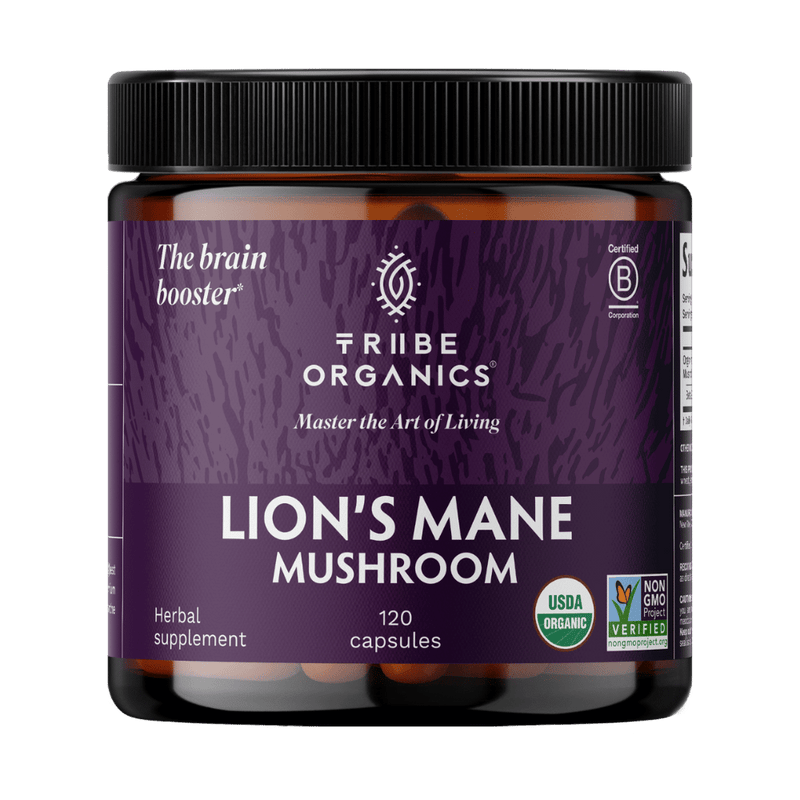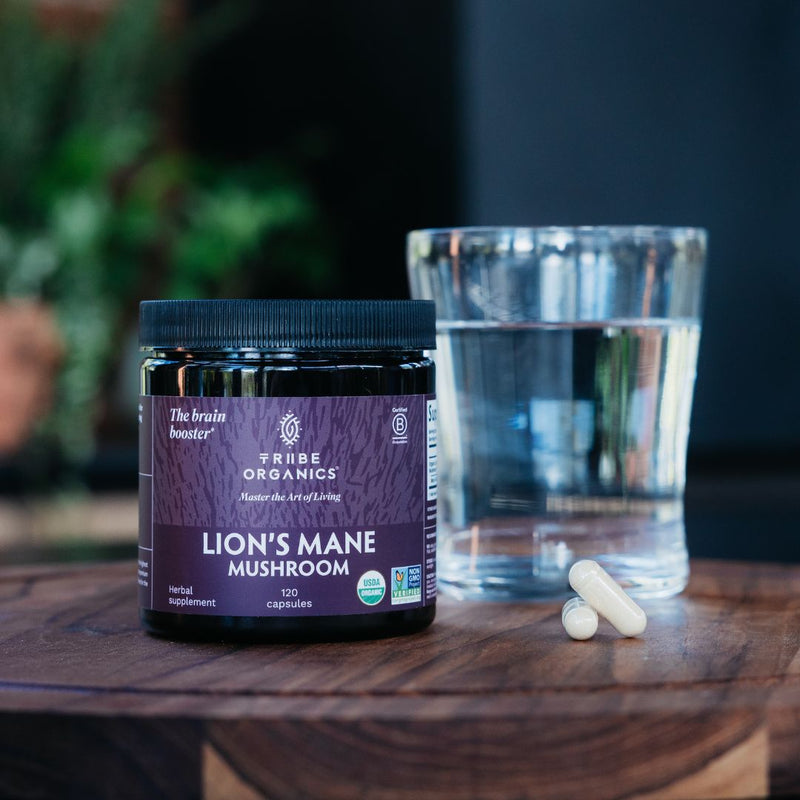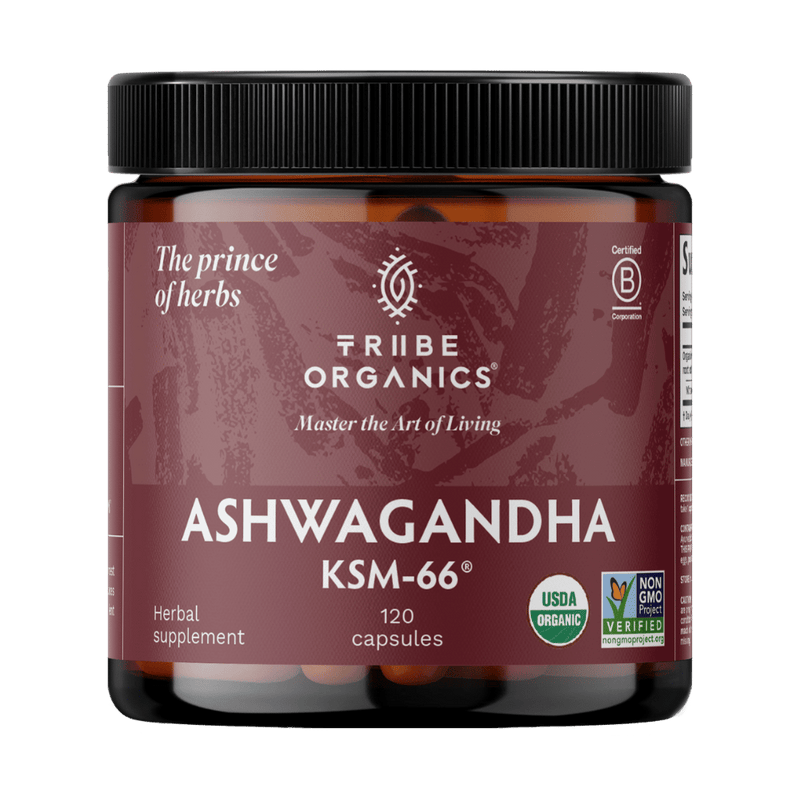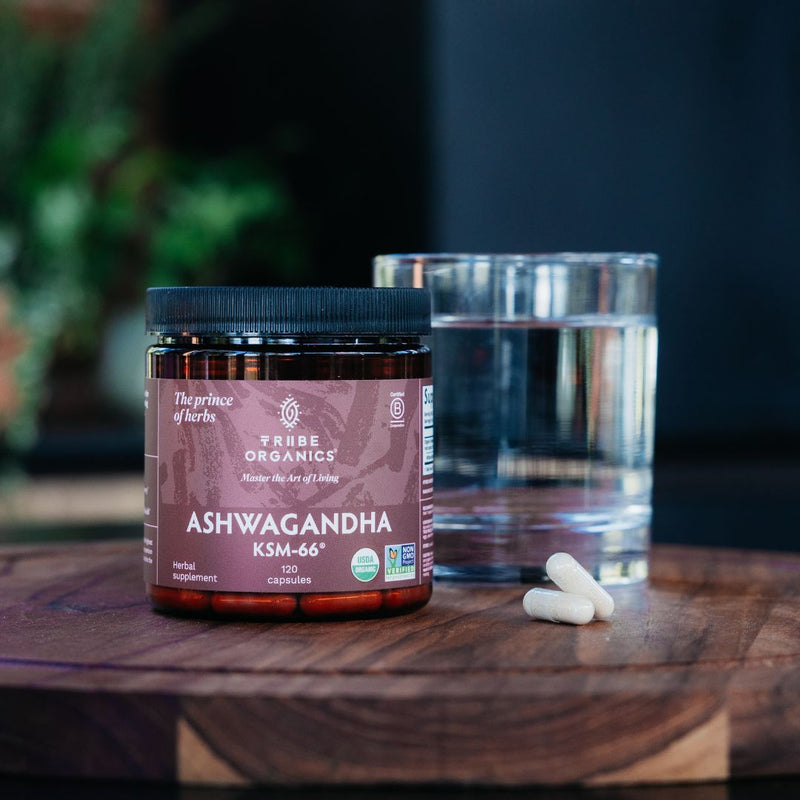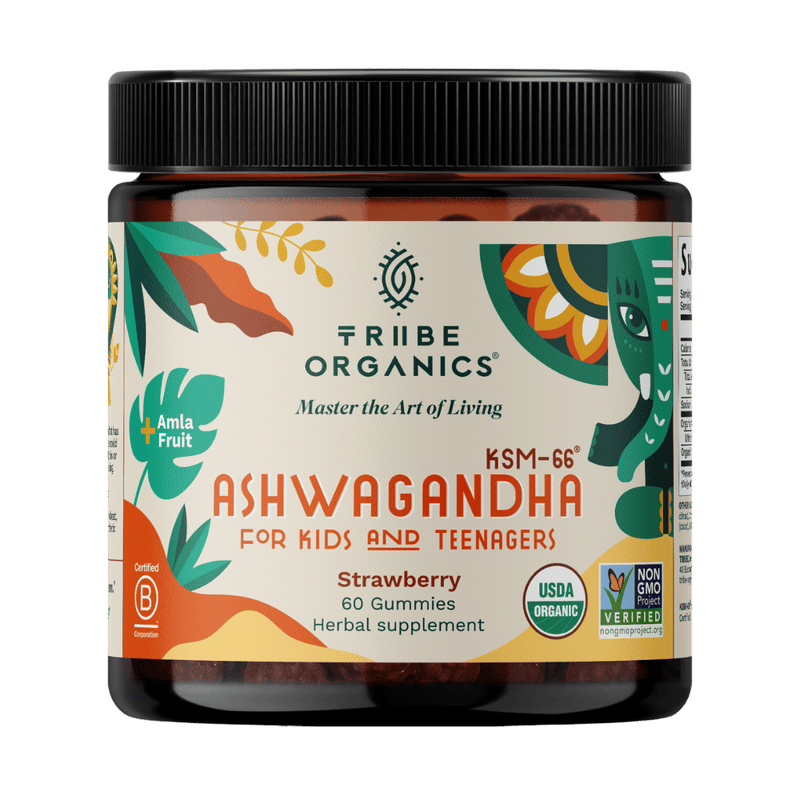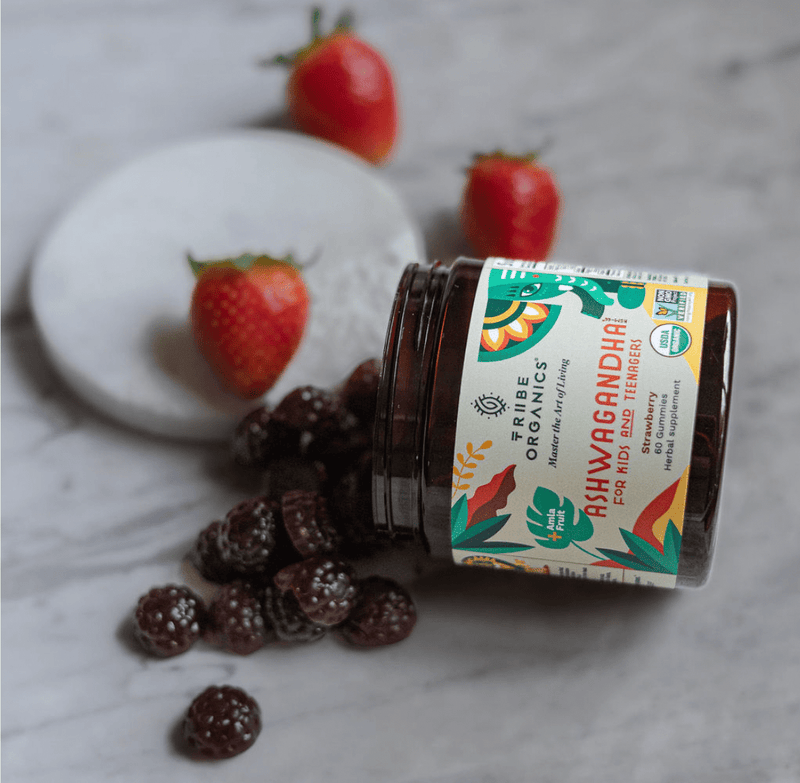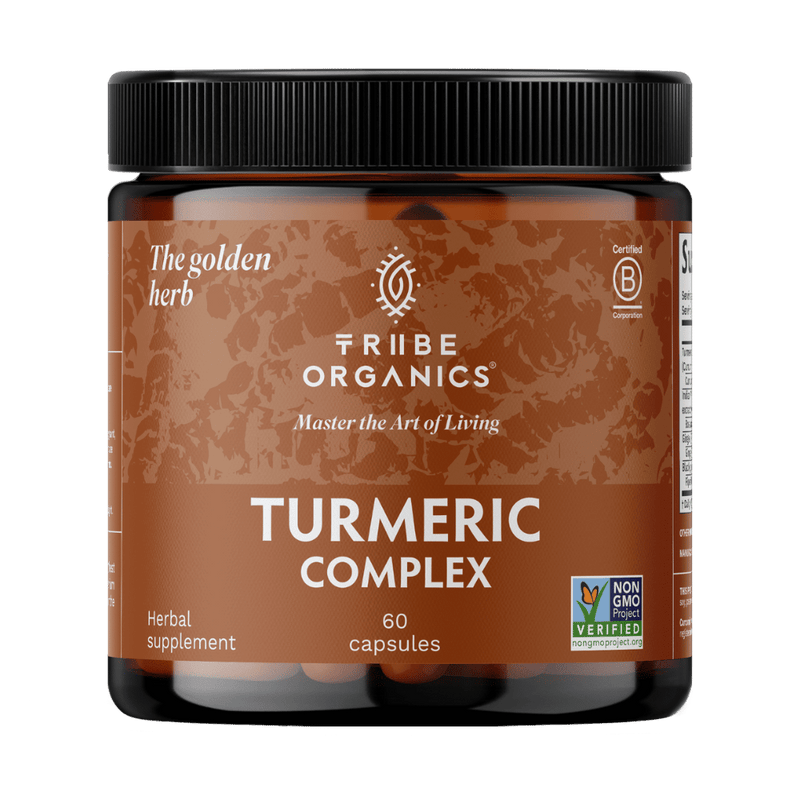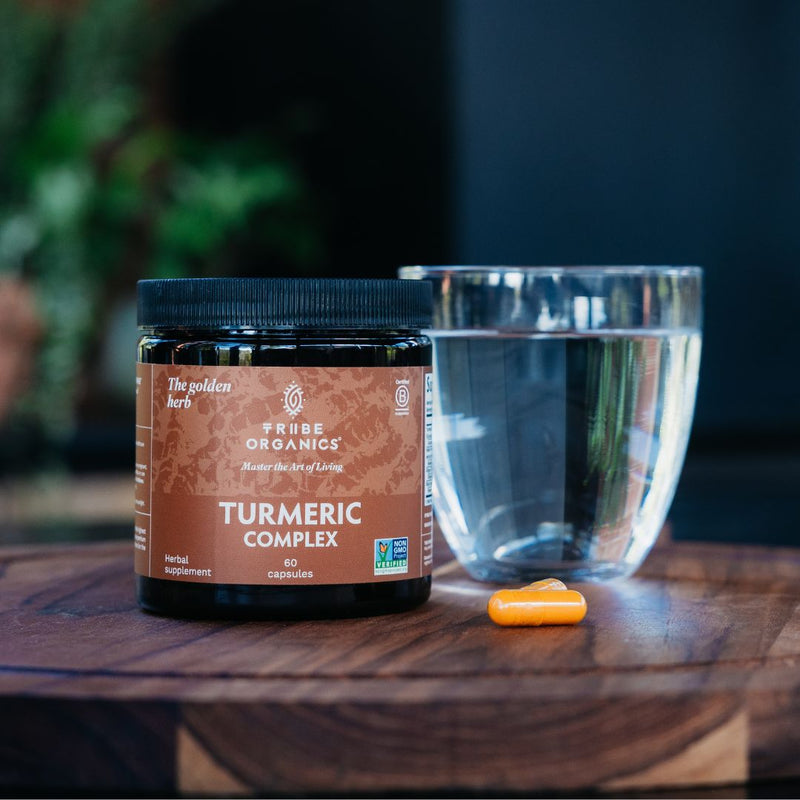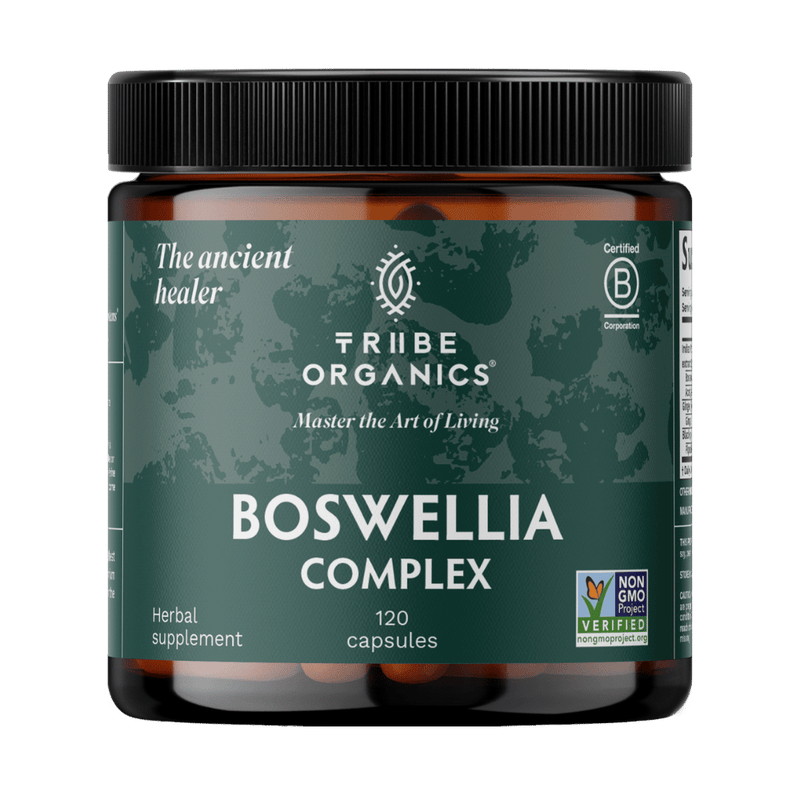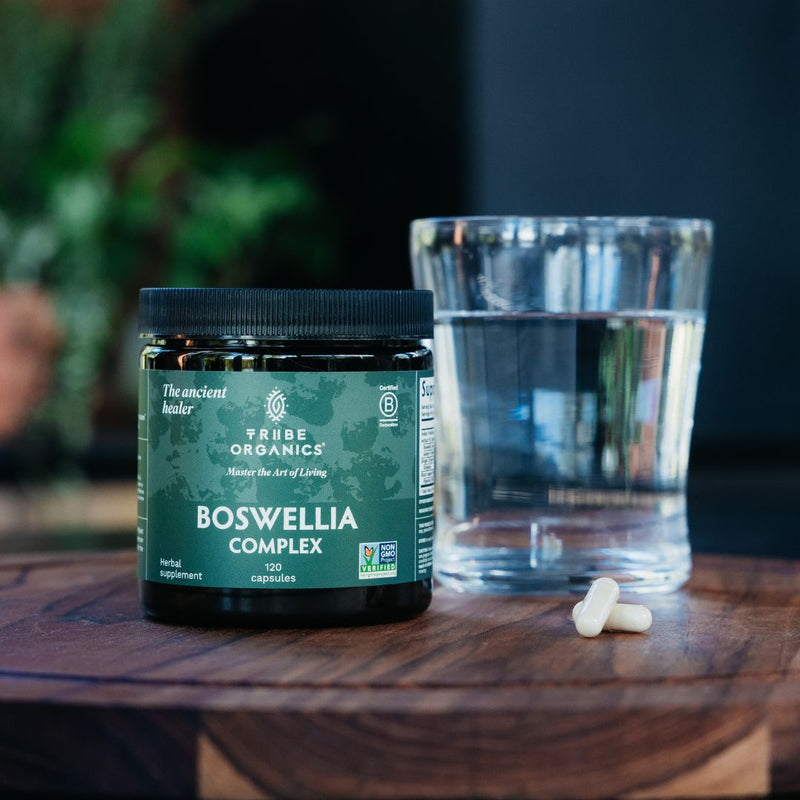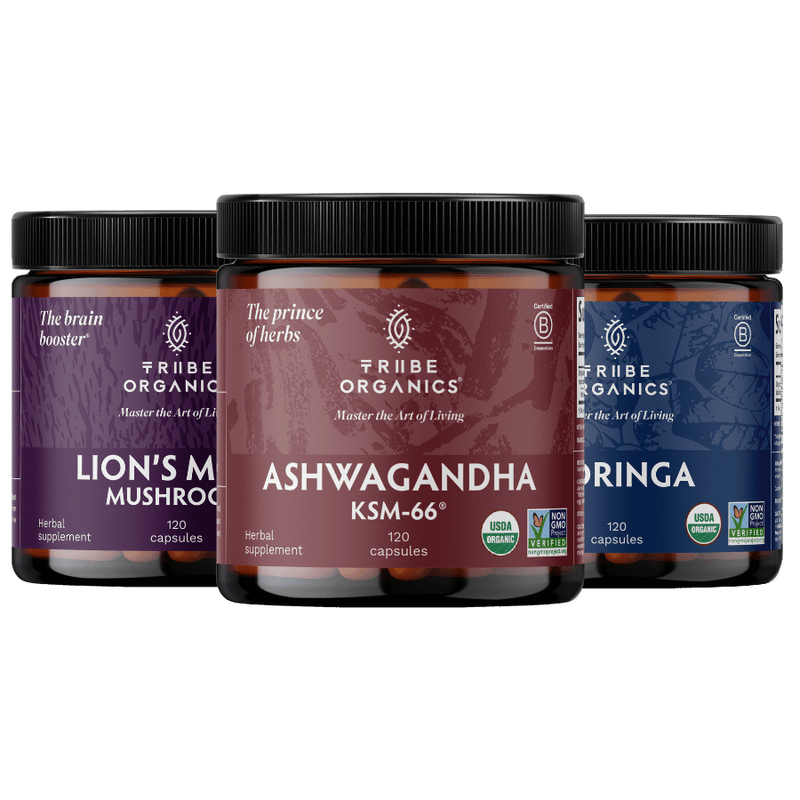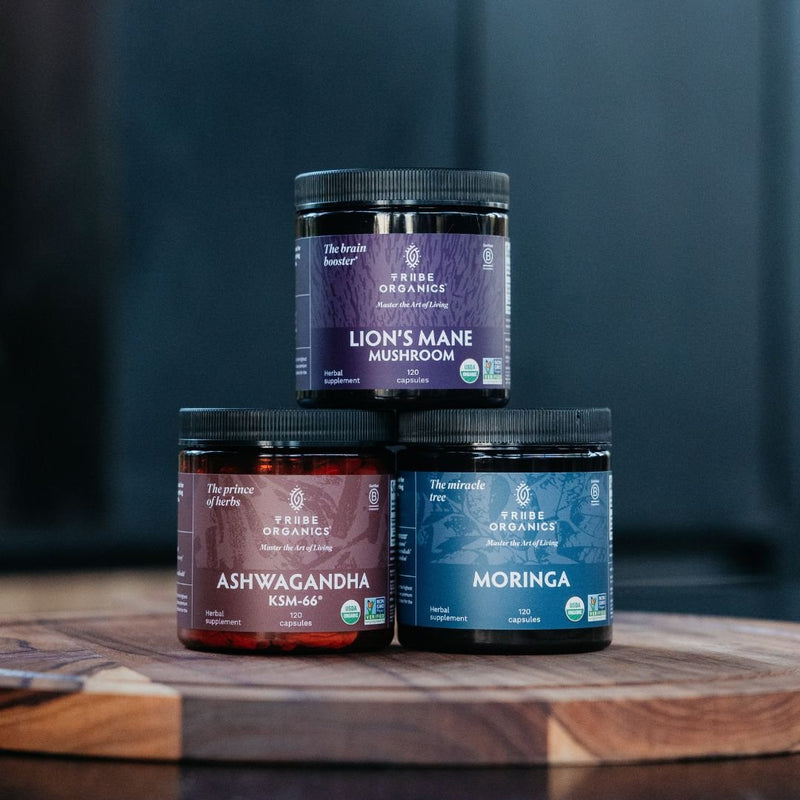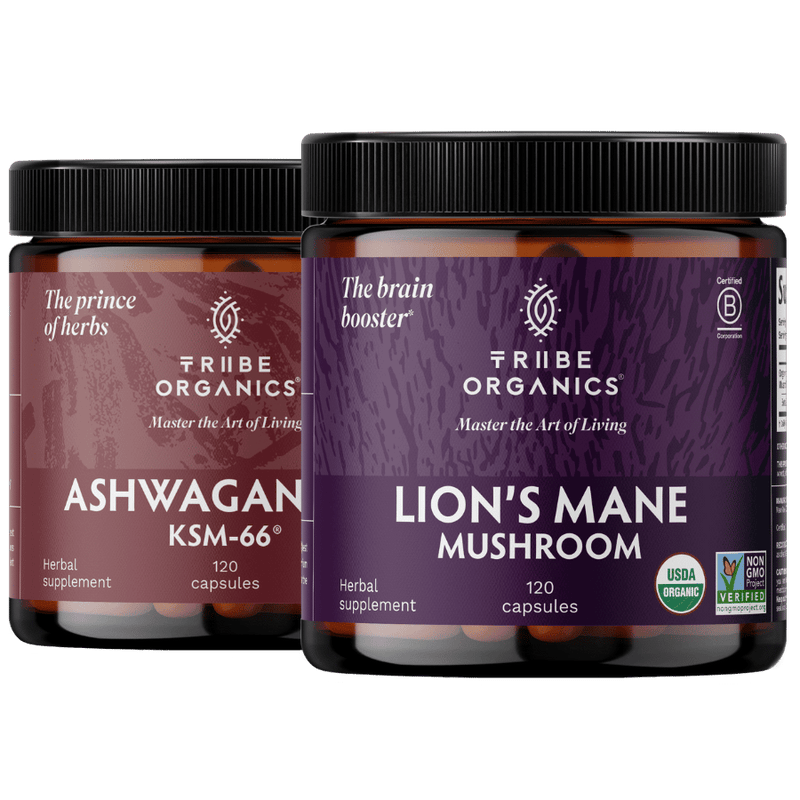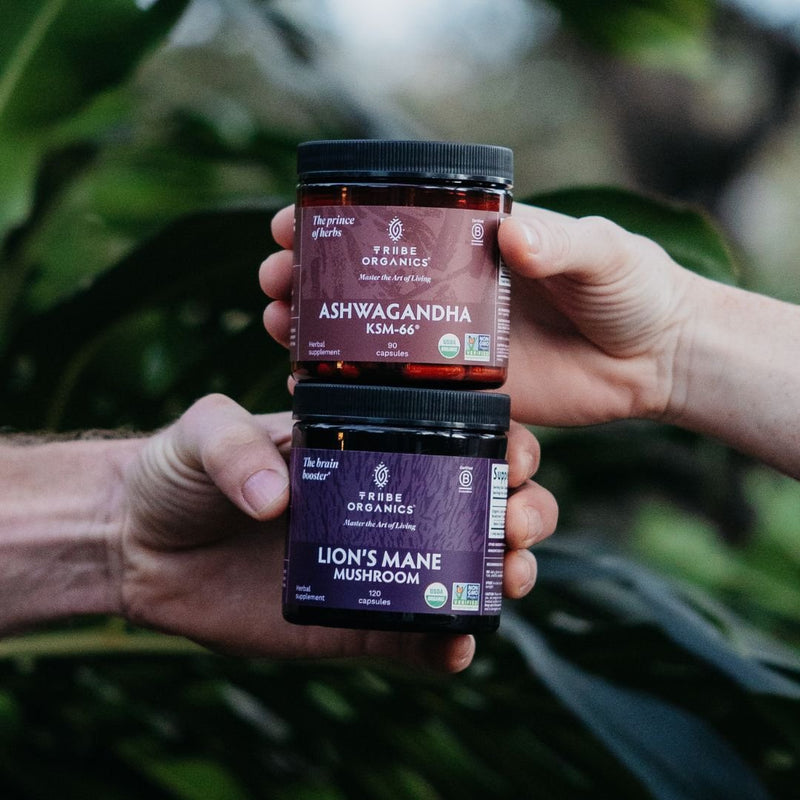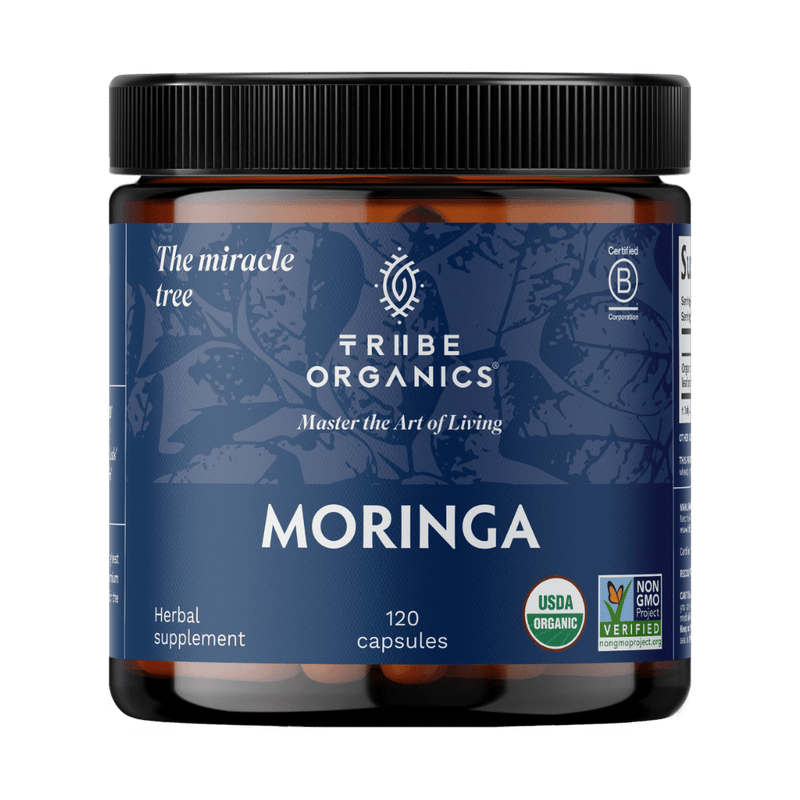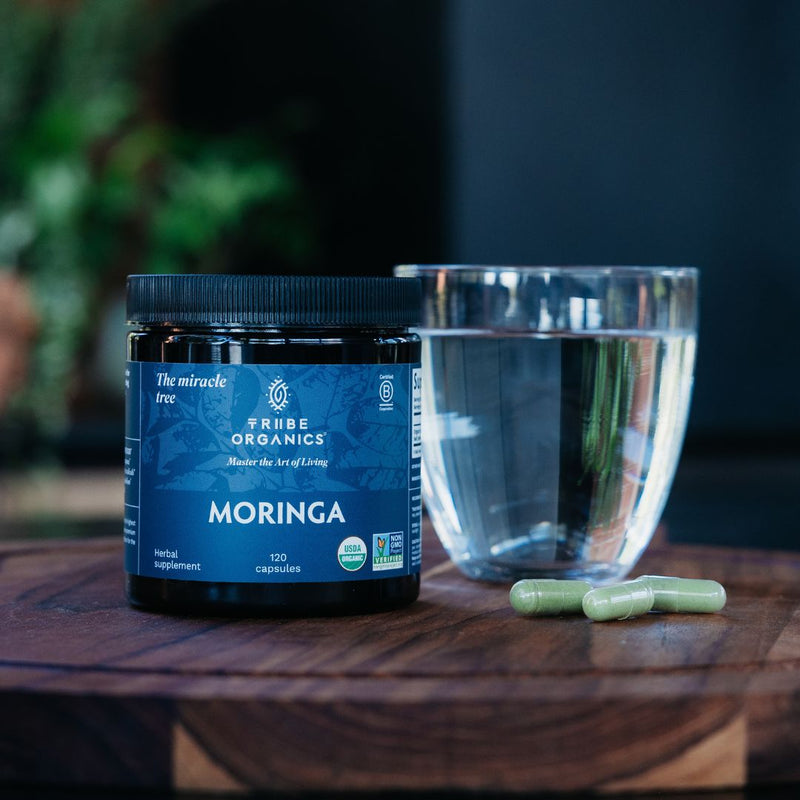Key Takeaways
- Curcumin, the active ingredient in turmeric, has been shown to significantly reduce PMS symptoms, easing both cramps and mood swings
- Research points to turmeric as an aid for managing menopausal symptoms—especially hot flashes—while also offering some protection against breast and ovarian cancers
- Turmeric's ability to reduce inflammation can benefit women's reproductive health issues, including endometriosis
- Turmeric's absorption is maximized when combined with black pepper and healthy fats; most people take supplements in the 500–1,000 mg range daily
Introduction
For generations, women have turned to the amber hue of turmeric as a remedy for everything from menstrual cramps to hormonal balance, and at last contemporary science is catching up to that ancient wisdom. Known as the golden spice, turmeric has a longstanding traditional reputation for its valuable culinary and medicinal uses. The same spice venerated in Ayurvedic medicine for countless centuries delivers a distinct set of health benefits that address many conditions disproportionately affecting women.
From polycystic ovary syndrome to menopausal symptoms and even cancer prevention, the health benefits of turmeric and its potential health benefits are supported by both traditional use and modern research. Recent clinical trials and human studies now corroborate what traditional healers have long asserted—its anti-inflammatory and antioxidant qualities make it a potent tool for optimizing women’s health. The various health benefits and benefits turmeric offers include support for thyroid health, joint pain, digestive issues, immune function, and more, making it especially valuable for women's health.
Understanding Turmeric and Its Bioactive Compounds
Turmeric (Curcuma longa) hails from the ginger family, flaunting a golden hue that has landed it a spot both as a kitchen staple and medicinal ingredient. Often labeled “Indian saffron,” this vivid powdered spice is packed with curcumin—the molecule that drives most of its therapeutic benefits, including liver protection and potential anticancer properties, such as inhibiting breast cancer cell growth.
For over four thousand years, Traditional Chinese Medicine and Ayurveda have turned to turmeric for women’s health concerns. Ancient practitioners observed its ability to support the reproductive system, keep inflammation at bay, and foster hormonal balance—benefits that modern animal studies and human trials continue to validate.
Typically, the curcumin extract in supplements reaches a purity of about 95%, whereas fresh root and ground powder contain only 2–9% of the same bioactive agent. Turmeric extracts are a concentrated form commonly used in research for their high curcumin content and superior bioavailability. That gap in concentration largely explains why most clinical trials use curcumin supplements instead of simply adding turmeric to meals; if you're interested, you can learn more about the difference between turmeric pills and powder. Eating turmeric in various forms and finding ways to incorporate turmeric into your diet—such as adding it to recipes or pairing it with fats for better absorption—can also help you access its health benefits.
Reproductive Health Benefits
Relief for Premenstrual Syndrome (PMS)
In a 2024 investigation, women who took curcumin supplements experienced significant easing of dysmenorrhea severity compared with the placebo group. The curcumin cohort reported decreased:
- Severity of menstrual cramping
- Digestive problems
- Mood swings and irritability
- Nausea and stomach upset
Research indicates that the most effective way to manage PMS is to take a 500 mg dose of curcumin extract daily, beginning one week before menstruation and continuing through the first few days of the cycle.
Curcumin's anti-inflammatory action makes it especially useful for easing PMS. Research indicates that taking curcumin can suppress prostaglandin production—the compounds that drive cramps and abdominal pain.
PCOS Management
Polycystic ovary syndrome touches 6–25% of women worldwide, placing it among the most common reproductive health issues. Curcumin shows promise for women with PCOS, with a growing body of studies reporting improvements in key health markers.
Results from clinical trials suggest that curcumin supplementation can assist women battling PCOS in achieving:
- Weight Management: Findings suggest that integrating curcumin with lifestyle adjustments results in a drop in body weight and favorable changes in body mass index (BMI).
- Insulin Sensitivity: Curcumin reduces insulin resistance and steadies blood sugar levels, tackling a core aspect of PCOS
- Reduced Inflammation: The chronic low-grade inflammation that worsens PCOS symptoms can be tamed by curcumin, delivering positive shifts in inflammatory markers
- Hormonal Balance: Emerging research hints that curcumin may aid in normalizing hormone levels while supporting ovarian function
PCOS is frequently associated with weight gain due to hormonal imbalances, and curcumin may help address this symptom as part of a comprehensive management approach.
Endometriosis Support
Endometriosis, a condition affecting millions of women, often brings relentless pelvic pain and can impact fertility prospects. While the scientific picture remains incomplete, early investigations hint that curcumin's ability to inhibit blood vessel formation may help restrain the spread of endometrial lesions beyond the uterus.
Animal experiments reveal curcumin's ability to:
- Reduce the size of endometrial implants
- Control the cytokine surge that fuels endometriosis pain
- Assist the body's apoptosis (programmed cell death) in clearing out abnormal tissue
- Help manage pelvic pain more effectively
The latest research frames turmeric as a beneficial adjunct to conventional therapeutic regimens, although the lack of human clinical trial data means that definitive protocols remain to be established.
Hormonal Transition Support
Perimenopause and Menopause
The transition through perimenopause and menopause brings its own set of challenges, and turmeric may prove to be a valuable ally. A substantial clinical study reported that a daily dose of 500 mg of curcumin reduced hot flashes more effectively than vitamin E, presenting women with a botanical alternative for tackling menopausal discomfort.
Women in the curcumin group began noticing benefits after 4–8 weeks, including:
- Less frequent and less intense hot flashes
- Marked improvement in sleep quality
- Stabilized mood and reduced emotional fluctuations
- Enhanced overall quality of life during hormonal transitions
While curcumin's impact on anxiety and sexual dysfunction is modest, its ability to reduce inflammation and enhance blood flow makes it a valuable component of menopausal health management.
Thyroid Health
Women are more prone to thyroid disorders than men, making thyroid support especially important for women's health. Emerging research hints that adding turmeric to a wellness routine could benefit thyroid function.
Studies suggest curcumin might:
- Lower the chances of developing goiter
- Help the immune system function properly in autoimmune thyroid conditions
- Reduce oxidative stress associated with thyroid disorders
Turmeric's ability to support thyroid health appears to stem from its antioxidant power, which helps eliminate reactive oxygen species that can otherwise harm thyroid tissue.
Cancer Prevention and Support
Breast Cancer
Breast cancer remains the most commonly diagnosed malignancy among women in the United States, elevating prevention and supportive care to critical health priorities. Preclinical work indicates that curcumin can arrest the migration of breast cancer cells and induce apoptosis within tumor populations.
Emerging clinical data point to curcumin offering encouraging benefits as an adjunct therapy during cancer treatment:
- Chemotherapy Support: Research hints that curcumin may enhance the effectiveness of some chemotherapy agents while easing their side effects
- Radiation Protection: Evidence suggests that curcumin could act as a protectant for healthy tissue during radiation therapy
- Symptom Management: Women undergoing cancer therapy report increased energy and reduced inflammation-related symptoms
Important note: Women undergoing cancer therapy should consult with their healthcare provider before introducing any supplement, as curcumin can interact with certain chemotherapy protocols.
Ovarian Cancer
Postmenopausal women carry higher odds of developing ovarian cancer, and emerging research hints that curcumin might serve as a protective ally. Laboratory experiments have shown that curcumin can slow tumor progression and make cancer cells more responsive to therapies.
Some potential benefits might include:
- Tumor-inhibiting characteristics that could dampen cancer cell expansion
- Reduced treatment-related side effects
- Improved quality of life during treatment
- Enhanced efficacy of chemotherapy regimens
While early data paint a promising picture, the field still awaits robust large-scale clinical trials before firm recommendations on curcumin's utility in both preventing and treating ovarian cancer can be solidified.
Fertility and Reproductive Health
The link between turmeric and fertility is a nuanced area of research that women need to understand before incorporating supplements into their reproductive health plans. Some studies hint at benefits—like helping preserve egg quality and supporting uterine function—while other work sounds a note of caution.
Potential Benefits
- Antioxidants act as a shield, protecting egg quality from oxidative stress damage
- Reduced inflammation may support conception efforts
- Support for reproductive system health
- Improved blood flow to reproductive organs through enhanced nitric oxide production
Research Considerations
Evidence from animal models implies curcumin could support ovarian reserve, but human investigations are still limited. Certain studies have raised the possibility that high doses may interfere with hormonal regulation, although everyday supplement amounts appear well-tolerated by most women.
IVF and Fertility Treatment Considerations
Women undergoing fertility treatments should discuss curcumin supplements with their reproductive endocrinologist, as timing and dosage may need adjustment for different phases of the treatment protocol.
Egg Preservation and Turmeric
Egg preservation represents a fundamental consideration for women seeking to optimize their reproductive health and plan strategically for future fertility. The remarkable potential of turmeric lies in its scientifically-validated antioxidant properties, anchored by its bioactive compound, curcumin. Clinical research demonstrates that oxidative stress significantly compromises egg quality and fertility outcomes, yet curcumin's proven ability to neutralize free radicals offers evidence-based protection for maintaining optimal egg quality over time. By integrating turmeric into your daily wellness protocol—through culinary applications, standardized turmeric supplements, or concentrated curcumin formulations—you can actively support your body's natural defense mechanisms against oxidative damage through this time-tested, research-backed approach.
While the emerging clinical evidence supporting turmeric's role in egg preservation continues to show promise, transparency demands acknowledgment that additional research is essential to fully validate its comprehensive effects in reproductive health optimization. If you're considering incorporating turmeric supplements or curcumin formulations into your fertility-focused regimen, particularly during conception planning, we strongly recommend consulting with qualified healthcare professionals to ensure personalized guidance aligned with your individual health profile. Embracing turmeric as part of your nutritional strategy represents an intelligent, evidence-informed approach to supporting reproductive wellness, yet individualized professional guidance remains paramount for achieving optimal health outcomes through educated decision-making.
Heart Disease Prevention in Women
Cardiovascular wellness remains a paramount concern for women's health optimization, yet the empowering truth is that evidence-based lifestyle choices—particularly nutritional wisdom—can profoundly transform outcomes. Ancient Ayurvedic traditions have long revered turmeric for its remarkable therapeutic properties, and modern clinical research now validates what traditional healers understood for millennia: curcumin, turmeric's primary bioactive compound, delivers scientifically-proven anti-inflammatory benefits. Research demonstrates that chronic inflammation represents a fundamental driver of cardiovascular disease, and incorporating turmeric into your wellness journey may significantly reduce inflammatory markers, enhance circulation optimization, and support healthy blood pressure management through natural, research-backed mechanisms.
Integrating this golden wisdom into your daily nutrition optimization is both accessible and transformative: incorporate organic turmeric powder into nourishing soups, healing stews, or antioxidant-rich smoothies, or utilize fresh turmeric root in cold-pressed juices and therapeutic stir-fries. Traditional turmeric tea offers another evidence-based pathway to harness these cardiovascular benefits, particularly when combined with black pepper—a time-honored pairing that clinical studies show can increase curcumin bioavailability by up to 2000%. For those seeking concentrated therapeutic dosing, standardized curcumin supplements provide research-validated potency with transparent third-party testing. Through the integration of turmeric's ancient wisdom with modern nutritional science, women can authentically empower their cardiovascular wellness journey, naturally optimizing their heart health while reducing disease risk through this pure, scientifically-validated approach to holistic wellness.
Immune System Function and Women’s Health
A resilient immune system forms the cornerstone of women's wellness optimization, influencing everything from reproductive health to your body's defense against chronic conditions. Turmeric, revered through ancient wisdom in both traditional Chinese medicine and Ayurvedic practices, offers profound knowledge-based support for immune system empowerment. This golden treasure's anti-inflammatory intelligence helps optimize inflammation management, while its antioxidant wisdom combats oxidative stress—two critical factors that can otherwise compromise your immune optimization journey and contribute to conditions like polycystic ovary syndrome.
Incorporating turmeric into your wellness optimization routine empowers your body's natural defense wisdom. Whether you're mindfully adding it to meals, savoring turmeric tea rituals, or exploring evidence-based supplements, turmeric's ability to intelligently modulate immune responses and support digestive harmony makes it an invaluable ally in your health journey. While ongoing research continues to unlock the full scope of turmeric's immune-optimizing benefits, its time-tested traditional use and emerging scientific validation suggest it's a wise addition to any knowledge-driven wellness routine. As always, we encourage transparent consultation with your healthcare provider before beginning new supplement journeys, especially if you're navigating existing health conditions or managing chronic wellness challenges.
Optimal Dosing and Recommended Amounts
Understanding the differences among turmeric’s forms helps women identify the option that best aligns with their health goals. A common question is how much turmeric to take daily for benefits like inflammation reduction or digestive support. While there is no standardized dosage, typical recommendations for turmeric supplements range from 500 mg to 2,000 mg of curcumin per day, but it’s important to consult a healthcare provider for personalized advice.
How you take turmeric also matters—consuming it with food and black pepper (which contains piperine) can significantly enhance absorption and bioavailability. For those seeking convenience, turmeric pills are available and often contain concentrated curcumin with added black pepper. However, turmeric pills may carry a higher risk of side effects at high doses and may not offer the same holistic benefits as eating turmeric in whole food form or as part of your diet.
Regularly taking turmeric, especially as part of meals, can support digestion. Digestion turmeric is known for its anti-inflammatory properties, which may help alleviate digestive disorders such as bloating, gas, and inflammatory bowel disease.
Whole Turmeric vs. Extracts
- Fresh turmeric root and ground powder contain roughly 2–9% curcumin
- Standardized curcumin extracts often boast curcumin levels reaching up to 95%
- Research studies typically use concentrated extracts rather than ground spice
Dosing Guidelines Based on Research
- General wellness: 350–500 mg curcumin daily
- PMS management: 500 mg daily, starting one week before menstruation
- PCOS management: 500–1,000 mg per day in divided doses
- Menopausal symptoms: 500 mg daily
- Joint health and rheumatoid arthritis: 500–1,000 mg daily
- Inflammatory conditions: 500 mg twice daily (per Arthritis Foundation guidelines)
Many health benefits flagged in studies appear to hinge on consistent supplementation, whereas occasional dosing tends to fall short.
Maximizing Absorption
Curcumin’s low bioavailability means that the amount you actually absorb is profoundly shaped by how it’s prepared and consumed. Supporting the digestive system is crucial for maximizing absorption, as turmeric can promote healthy blood circulation to the gut and increase bile flow, aiding fat breakdown and nutrient absorption for overall health.
Essential Uptake Enhancers
- Black Pepper: The piperine it contains can raise curcumin absorption by up to 2,000%
- Healthy Fats: Turmeric mixed with olive oil, coconut oil, or any fat gets absorbed more efficiently
- Heat: Cooking turmeric or steeping it in tea can markedly increase bioavailability. To learn more about how long it takes for turmeric to work, check out our comprehensive guide.
Practical Implementation
- Take supplements with a meal that includes healthy fats
- Choose supplements that include piperine (black pepper extract)
- Enjoy turmeric tea with black pepper and coconut milk
- Add fresh turmeric root to smoothies with nutrient-rich oils
Safety Considerations and Interactions
While the FDA considers turmeric generally safe up to 8 grams daily, women should be aware of potential side effects and interactions when using supplements. Turmeric is often used to support digestive disorders such as bloating and inflammatory bowel disease due to its anti-inflammatory properties, but high doses may aggravate certain gastrointestinal issues. Additionally, turmeric is known for its benefits to skin health, including improving skin appearance and addressing conditions like acne and eczema, though some individuals may experience allergic skin reactions.
Common Side Effects at Higher Doses
- Stomach upset and digestive discomfort
- Nausea and diarrhea
- Potential for heartburn
Key Drug Interactions
- Blood Thinners: Turmeric has anticoagulant properties that might amplify the effects of blood-thinning medications
- Diabetes Medications: May enhance blood sugar-lowering effects
- Chemotherapy Drugs: Can occasionally interfere with cancer treatments
Special Populations Requiring Caution
- Pregnancy and Breastfeeding: While culinary amounts of turmeric are generally safe, high-dose supplements are best avoided
- Kidney Stones: High-dose supplements may increase oxalate levels
- Gallbladder Disease: Can exacerbate existing gallbladder issues
- Iron Deficiency: Consuming turmeric in large quantities can hinder iron absorption
- Digestive Sensitivities: Some women find that high doses can trigger IBS symptoms or inflammatory bowel disease flares
Learn more about turmeric’s potential side effects and how to overcome them.
Women should always consult their healthcare provider before starting any supplement routine, especially if managing chronic illnesses or taking prescription medications.
Moving Forward with Turmeric for Women's Health
Getting the most out of turmeric comes down to three key factors: determining the right dose, boosting absorption by pairing it with black pepper and healthy fats, and keeping expectations in line with what current research actually supports. While curcumin-rich supplements can deliver a concentrated dose, simply stirring turmeric into cooking or sipping golden milk can offer gentle, ongoing wellness support.
More studies are confirming what herbal tradition long suggested: turmeric can be a powerful ally for women's health. Researchers are not only backing up age-old uses but also uncovering fresh applications—whether it's soothing PMS, supporting PCOS therapies, protecting patients during cancer treatment, or smoothing the transition through menopause.
As investigations into curcumin continue uncovering its influence on brain function, cardiovascular disease, metabolic syndrome, and other conditions that disproportionately impact women, the golden spice's place in women's health is set to expand. Nonetheless, turmeric delivers its greatest benefit when embedded in a well-rounded health plan—one that pairs nutritious diet, regular physical activity, effective stress-relief practices, and appropriate medical oversight.
For women seeking evidence-based answers to their health concerns, turmeric presents a time-honored, science-backed solution that honors ancient wisdom while satisfying the rigorous standards of contemporary research.
Frequently Asked Questions
Shop best sellers
Explore our collection of favorite items that have gained popularity for their quality and satisfaction.


